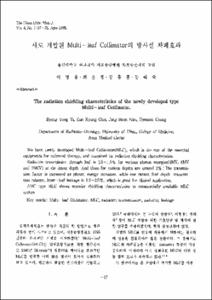한국의 국가적 특성과 교육
- Alternative Title
- Contradictions of the South Korean State's Role in Education
- Abstract
- 이 글은 한국 국가의 역할 변화와 교육적 변화의 관계를 분석한 글이다. 한국의 국가는 산업화 당시, 강한 국가 (strong state)와 개발국가 (developmental state)의 특징을 가지고 있었다. 사회로부터 국가의 상대적 자율성 (state autonomy)은 예외적으로 강하고, 경제에 대하여 강한 통제를 행사하는 형태였다. 특히 산업화과정에서 국가는 경제 성장에 주요한 역할을 하였다. 이는 시민 사회와 자본주의의 미발달과 깊은 관계가 있다. 교육도 이러한 국가의 역할모형에 따라 변화되어 왔다. 경제성장 정책에 적합한 인력양산과, 정치적 안정을 위한 이데올로기 정당화가 교육의 주요한 역할이 된다. 교육행정의 특징 역시, 사회에 대한 강력한 통제를 행사하는 강한 국가의 특성이 그대로 나타난다.
산업화가 어느 정도 완성단계에 이르자, 기존의 국가적 역할은 심한 도전을 받기 시작한다. 경제발전을 통하여 성장한 다양한 개인과 집단은 강한 국가와 개발국가의 특성과 역할에 대하여 도전하며 재정립을 요구한다. 경제부문에 대한 국가의 강한 통제는 더 이상 보호가 아닌 발전의 저해 요소로 인식되?解?, 성장한 시민 사회의 다양한 개인과 집단은 정치적 민주화, 지방화, 경제적 자유 등을 요구하였다. 교육부문에서도 기존의 단일품종-대량생산 모형에 적합한 규격화되고 획일적인 교육내용과 통제 방식은 비판과 역할 수정을 직면하게 된다. 또한 자본주의 발달, 정보화, 국제화된 사회 환경은 기존의 교육내용과 학교 제도에 대한 근본적인 변화를 요구하게 된다. 그러나 1980년대 말부터 본격적으로 시작된 이러한 대내외적 변화와 도전에 잘 대처하지 못하는 국가의 역할혼란의 상태가 장기간 지속되고 있는 듯하다. 그러한 원인은 제도화된 권위주의, 강한 국가의 전통인 중앙집권적 교육행정 체제의 잔존, 입시위주의 교육 풍토, 그리고 정치논리로의 교육정책의 접근 등으로 설명될 수 있다.
This study is focused to the relations between the transition of the South Korean state and educational change. South Korea is widely known for having a exceptionally "strong state." For a capitalist society, the South Korean state possesses an unusual degree of autonomous power and maintains tight control over both the economy and society. The state clearly overpowers civil society with an impressive capacity to penetrate into society and mold the behavior of social groups and individuals. Another character of the South Korean state is its role in economic development as "a developmental state." During the late-industrialization period (1961-1980), the South Korean state played a major role in economic growth. Although it is true that all modern states intervene in economics in one way or another, the South Korean state stands out in terms of the depth of its intervention and its ability to discipline the business.
However, the developmental state could no longer maintain its legitimacy for economic development. The private sector began to challenge the state's role. The growth of civil society also demanded to reevaluate the state's role and function. With economic development, the business sector, middle class, and labor group became important agents of social change.
As the South Korean state's role was challenged by newly-grown civil society, the role of education had to be changed from as "education for economic development and political legitimation" to as education to keep up with a variety of the demands in its knowledge and information sector. The highly-centralized educational administration was a target for student protest, teacher union and parents' criticism. The movement for educational decentralization challenged the authoritarian educational administration. The demands of knowledge and information to be changed into "an information society" also began to ask educational change in curriculum and school system.
This study is focused to the relations between the transition of the South Korean state and educational change. South Korea is widely known for having a exceptionally "strong state." For a capitalist society, the South Korean state possesses an unusual degree of autonomous power and maintains tight control over both the economy and society. The state clearly overpowers civil society with an impressive capacity to penetrate into society and mold the behavior of social groups and individuals. Another character of the South Korean state is its role in economic development as "a developmental state." During the late-industrialization period (1961-1980), the South Korean state played a major role in economic growth. Although it is true that all modern states intervene in economics in one way or another, the South Korean state stands out in terms of the depth of its intervention and its ability to discipline the business.
However, the developmental state could no longer maintain its legitimacy for economic development. The private sector began to challenge the state's role. The growth of civil society also demanded to reevaluate the state's role and function. With economic development, the business sector, middle class, and labor group became important agents of social change.
As the South Korean state's role was challenged by newly-grown civil society, the role of education had to be changed from as "education for economic development and political legitimation" to as education to keep up with a variety of the demands in its knowledge and information sector. The highly-centralized educational administration was a target for student protest, teacher union and parents' criticism. The movement for educational decentralization challenged the authoritarian educational administration. The demands of knowledge and information to be changed into "an information society" also began to ask educational change in curriculum and school system.
- Issued Date
- 2001
- Type
- Research Laboratory
- Alternative Author(s)
- Lee, Jebong
- Publisher
- 사회과학논집
- Language
- kor
- Rights
- 울산대학교 저작물은 저작권에 의해 보호받습니다.
- Citation Volume
- 11
- Citation Number
- 2
- Citation Start Page
- 137
- Citation End Page
- 148
- Appears in Collections:
- Research Laboratory > Journal of social science
- 파일 목록
-
-
Download
 000002024285.pdf
기타 데이터 / 145.71 kB / Adobe PDF
000002024285.pdf
기타 데이터 / 145.71 kB / Adobe PDF
-
Items in Repository are protected by copyright, with all rights reserved, unless otherwise indicated.